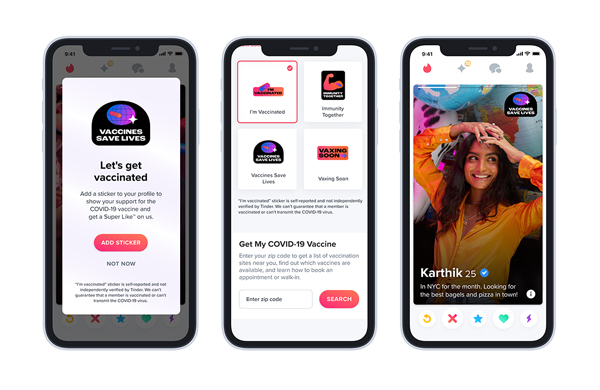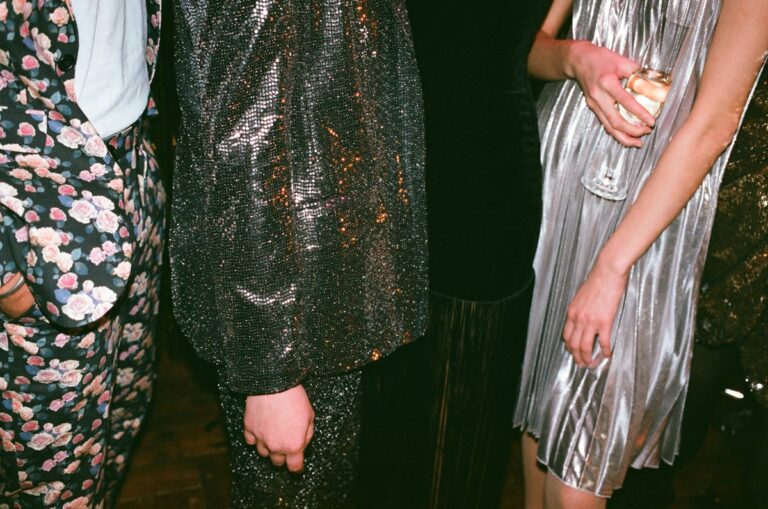Hot vax summer: White House partners with dating apps to encourage users to get vaccinated
On 3 March 2021, President Joe Biden announced new strategies to counter the declining pace of immunisations and reach his goal of partly inoculating 70 per cent of American adults by 4 July. In a series of efforts that followed, the White House essentially highlighted the benefits of a COVID-19 vaccine without actually mandating one. Now joining vaccinated baseball seatings and free Uber rides to vaccination sites is an incentive seeking to promote a ‘hot vax summer’: dating app perks.
Hoping to reach over 50 million users based in US, the White House has teamed up with nine of the largest dating apps—including Tinder, OkCupid, Hinge, Bumble, Badoo, BLK, Chispa, Match and Plenty of Fish—to offer perks to those users who have gotten their COVID-19 shot.
“Social distancing and dating were always a bit of a challenging combination,” said Andy Slavitt, a senior adviser on the COVID-19 response team, during a virtual briefing with reporters announcing the incentive. Highlighting how vaccination statuses are proven to boost matches by 14 per cent, Slavitt equated vaccines to a “universally attractive quality” when it comes to dating. “These dating apps will now allow vaccinated people to display badges,” the adviser said, roughly sketching up the incentive. “It would show their vaccination status filter specifically to see only people who are vaccinated and offer premium content like boosts and Superswipes.”
Conceived over several weeks of discussions with the apps, Slavitt also added how the promotional push is a “response to the President’s call to action” rather than an official partnership with the nine apps.
Platform-specific plans to ‘vaccinate and chill’
All the nine apps involved in the push would offer a wide variety of features to vaccinated users. In the case of Tinder, White House officials have suggested the adoption of a popular incentive the app used during elections, which allowed users to attach stickers to their profiles if they had registered to vote. Similarly, Tinder users will be able to promote their vaccination status with stickers like “Getting Vaxed” and “Vaccines Save Lives.” Users who add these stickers between 2 June and 4 July will also be gifted a ‘Super Like’ that helps raise their chances of receiving desired matches. The platform is also set to add resources from Vaccine.gov to help users figure out the nearest vaccination centre.

As for vaccinated users over on OkCupid, they can choose to add an “I’m Vaccinated” profile badge, get a free profile boost and choose to be paired only with users who have been vaccinated. Hinge, on the other hand, is all set to gift vaccinated users a free ‘Rose’—a feature that sends users to the top of a person’s ‘Like You’ feed. Match, Bumble and Badoo will also enable users to add relevant badges and avail premium features such as Spotlight and Superswipe.
BLK, a popular app for black singles, will add a new “Vaxified” profile badge and give free boosts to its users while Chispa, the largest dating app for Latino singles, will allow users to add an equivalent badge that spells “Vacunado.” Lastly, Plenty of Fish will feature “I Got My Shot” badges starting early June with the incentive of 20 ‘Live!’ credits users can spend on the platform’s streaming feature.
A saga of creative vaccine pushes
Governments and businesses all across the world are engaging in creative, considerate and non-coercive measures to encourage people to get vaccinated. In terms of locations, such pushes have previously converted museums, public transport, football games and even strip clubs into vaccination centres. On the entertainment front, vaccination efforts have roped in an entire girl group named SNH48 as ambassadors. Don’t even get me started on the list of vaccine freebies. From Krispy Kreme doughnuts to free beer and concert tickets, freebies have essentially opened up a realm of debatable possibilities.
The mix also includes other vaccinated citizens with the aim of curbing anti-vaxxer misinformation while encouraging those on the fence about getting vaccinated. Vaccine selfies, merchandise and online factions like ‘Moderna mafia’ and ‘Pfizer fam’ are all efforts coupled with various TikTok trends on this front. In terms of dating, the industry initially witnessed an influx of self-initiated, pro-vaccine trends—with keywords like “covid vaccinated” and “fully vaccinated” dominating Tinder bios as early as September 2020.
Conversations about proper sanitation were already a turn-on for dating app users since the beginning of the pandemic and the latest trend of vaccination bios seemed to further add on to a user’s oomph factor. Not only did vaccines become the biggest talking point on these apps, but it also quickly evolved into a huge deal-breaker—with insights collected by OkCupid suggesting 40 per cent of millennials and gen Z users cancelling dates with someone who refuses to take the vaccine.
With all of these factors taken into account—coupled with the eagerness of users to get back on the market—the White House’s move is undoubtedly an essential one tapping into all of the right cultural trends and conversations. As major dating apps roll out such vaccine-friendly features, users would also expect other platforms to catch up, in turn fostering a new normal altogether.





